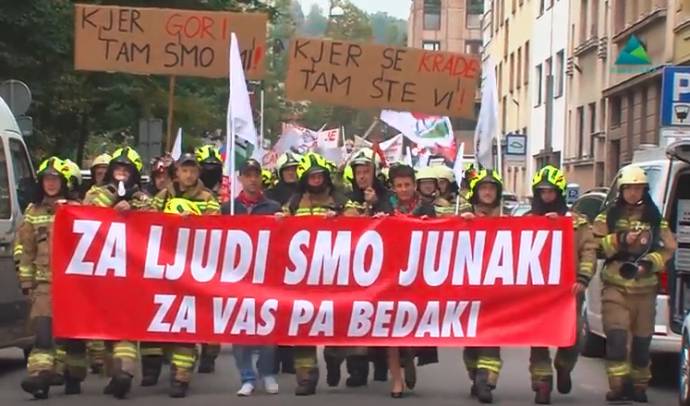December 11, 2017
A series of strikes was announced for January 2018 by the negotiating group of the public-sector trade unions last week, in a response to the government’s decision to negotiate solutions for wage anomalies case by case and with each union separately. The common negotiating group takes the government’s decision as an attempt to break the common public-sector wage system, said Jakob Počivavšek, the group leader, in his statement for MMC RTV Slovenia last week.
It is widely believed that the chain of strike announcements has been caused by the government’s recent decision to give in to the demands of the Trade Union of Doctors and Dentists (FIDES), who managed to jump several salary bands in the common public wage system. This means that salary of a medical doctor employed by the public sector will now start seven bands ahead of, say, a veterinarian. FIDES’ initial demands were even higher, asking that some in the medical field should be in the highest 65th band, where presidential salaries are located.
Minister of Public Administration Boris Koprivnikar tied strike threats with approaching elections and called them “unconstructive” in attempts to build a just system of rewards. To the complaint that it was the government which opened Pandora’s Box on this issue by giving in to the demands of FIDES, Koprivnikar replied that the actual data is different from the union’s claim of a seven-band salary difference that the doctors are presumed to have gained, and that doctors’ salaries will positively influence salary coordination with other public employees, although this can only happen through a negotiating process.
The Slovenian Intelligence and Security Agency (SOVA), however, has already been on a strike since last Friday, a fact that even Koprivnikar was unaware of. The minister found the strike “surprising” and called it a unique phenomenon. Koprivnikar also said that he was unaware of SOVA’s demands and reminded people that the right to strike is very limited in the case of this agency, as it is by law committed to fulfilling its regular operational duties.
Now that the Slovenian economy has recovered from the financial crisis, it seems likely that the approaching parliamentary elections will be marked with fights over the spoils of the growing GDP.
Firefighters, who have also announced their strike in January, held a protest in front of the government building in October:






